Walter Smith: Decorated football manager who was dedicated to the game
A shrewd strategist with a rare ability to handle people, his two spells in charge of his boyhood club Glasgow Rangers brought an incredible haul of 21 trophies
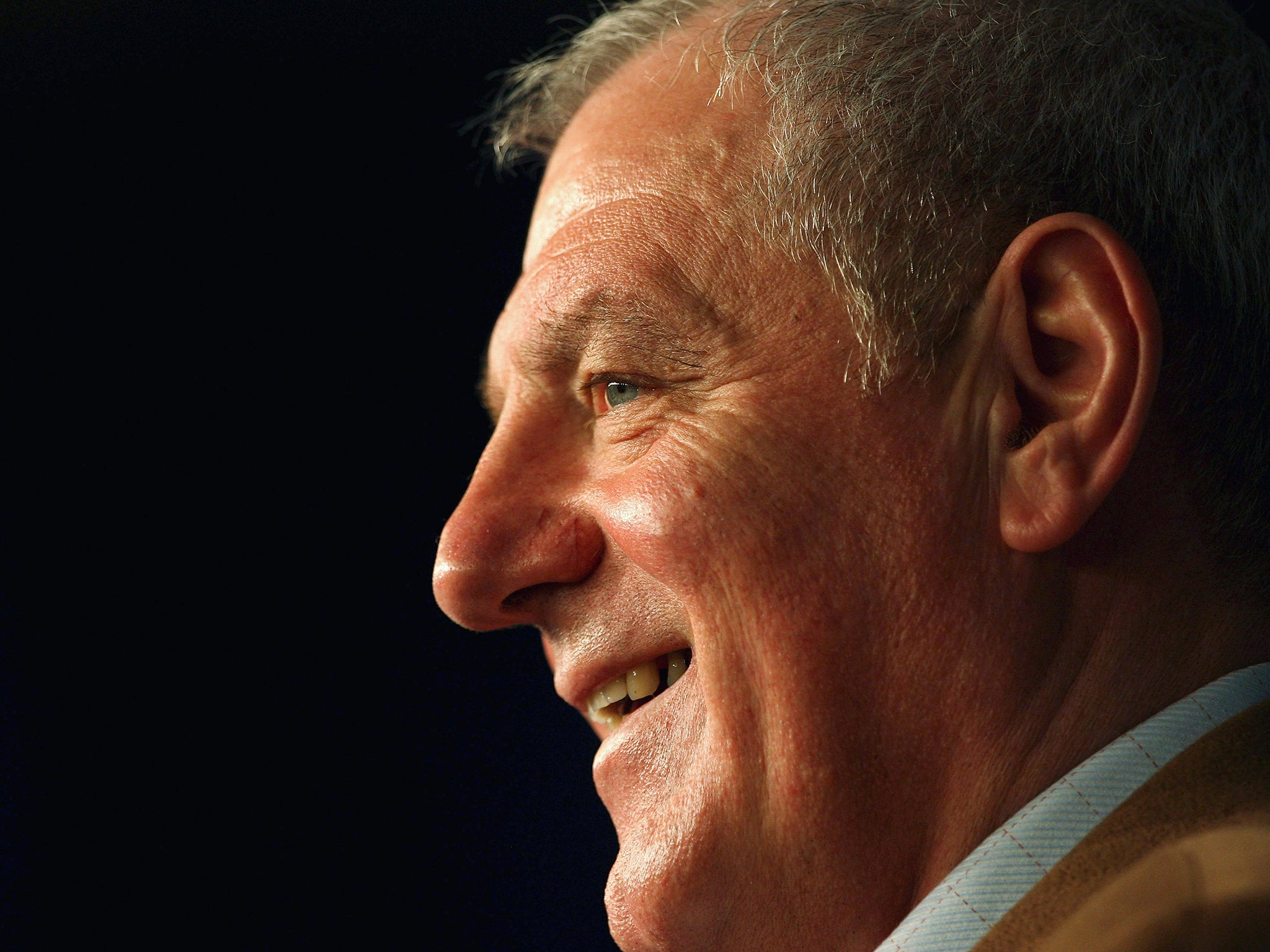
Widely respected throughout the footballing world, Walter Smith, who has died aged 73, was a working-class Glasgow boy who went on to become one of the most decorated football managers of all time.
While never a great player himself, during two spells as manager of Glasgow Rangers he delivered 10 league titles, won six League Cups, five Scottish Cups and led the Light Blues to the 2008 Uefa Cup final. In the interim, he also took charge of the Scottish national team and spent four years in England with Premier League side Everton.
His ability to transcend the more traditional sporting tribal loyalties was evidenced by his presence as a pallbearer at the requiem mass for the former Celtic footballer Tommy Burns, who died of cancer in 2008 at the age of 51.
Steeped from an early age in an all-consuming footballing tradition and though born in Lanark, William Ferguson Smith spent his formative years at Carmyle in the East End of Glasgow. Both his father, who worked as a crane driver, and his mother, a housewife who played the piano at their local church, were strong disciplinarians who instilled in their family a strong work ethic.
After leaving school Smith began an electrical apprenticeship while studying at Coatbridge Technical College. He subsequently went to work for the South of Scotland Electricity Board. As a tough-tackling central defender, he began his football career with Ashwell Juniors. Forever dreaming of donning a coveted light blue jersey one day, instead, in 1966, he signed for Dundee United at 18.
The highlight of Smith’s first spell at Tannadice was an appearance in the 1974 Scottish Cup final, losing 3-0 to Celtic. Moving to Dumbarton for two years in 1975, his return to Dundee United was increasingly blighted by injury. Indeed, he set a club record by playing 360 games for their reserve team. Encouraged by manager Jim McLean, Smith turned to coaching, becoming McLean’s assistant in 1979.
While, like McLean, a strict disciplinarian and a shrewd strategist, it was soon apparent that what set him apart was his ability to handle people. Together, the pair briefly threatened the Old Firm duopoly, capturing the Scottish League Cup in 1983. A year earlier he had proved his mettle on the international scene, as assistant to Andy Roxburgh when Scotland won the 1982 European Under-18 Championship. Smith went on to take charge of the under-21s and at the 1986 World Cup finals held in Mexico, he assisted Alex Ferguson with the Scottish senior side.
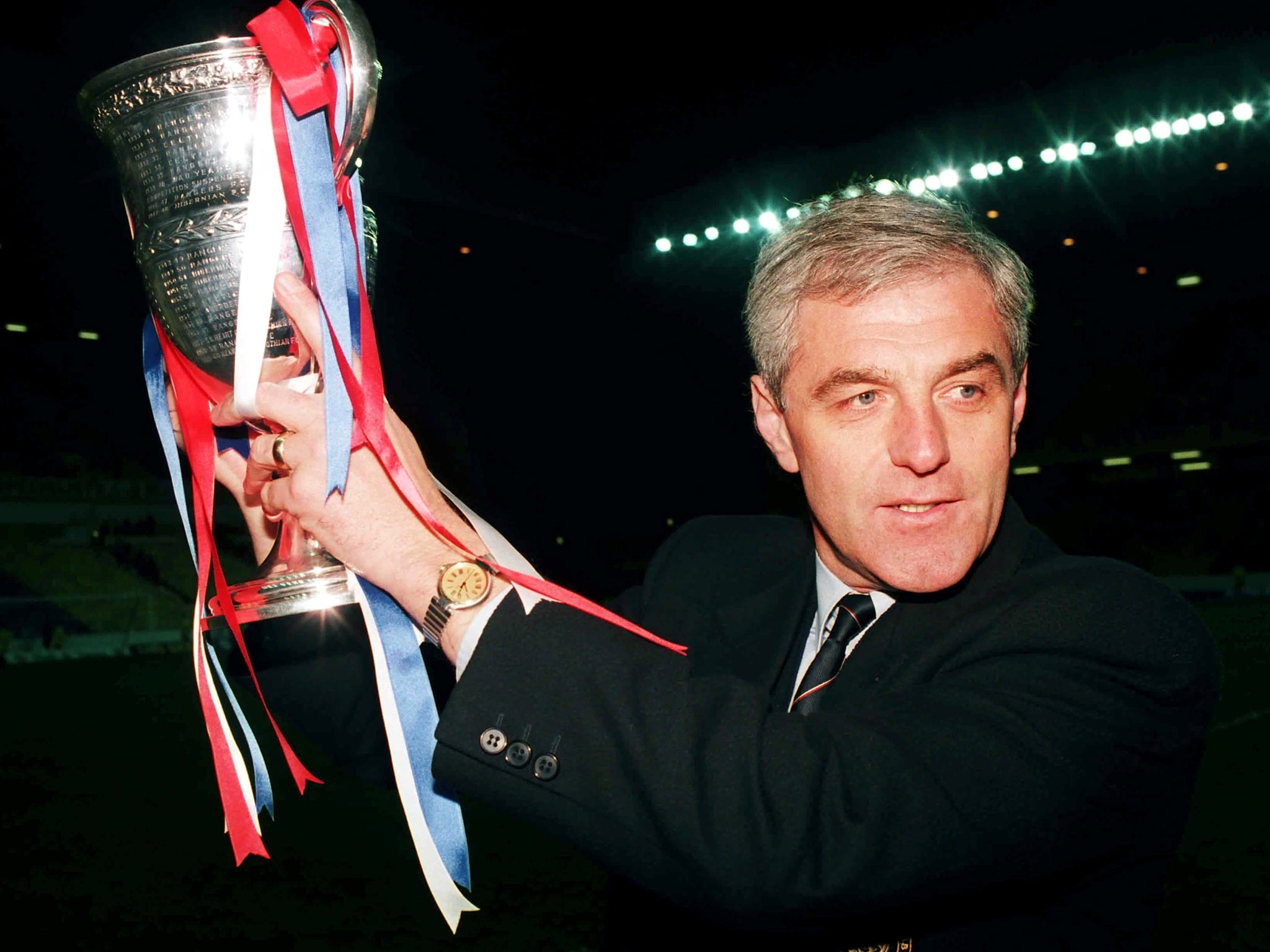
Earlier that summer Glasgow Rangers had paid Dundee United £50,000 to take Smith to Ibrox to assist their new manager Graeme Souness. With no league title since 1978, a string of bold signings from English clubs soon followed. Among the players lured north by the attraction of European competition at a time when English clubs were banned from Europe in the wake of the Heysel tragedy were Terry Butcher, Chris Woods, Trevor Francis and Ray Wilkins. However, it was the signing of a former Celtic player, the Catholic Mo Johnston, that proved far more controversial.
With Souness sent off on his debut against Hibernian and regularly facing touchline bans, such as for the 1987 League Cup final, Smith increasingly became the principal figure in the dugout. Alongside victories in two League Cup finals came title triumphs in 1986-87, 1988-89 and 1989-90.
After declining to join Souness following his move to Liverpool, Smith then replaced him as Rangers’ manager in 1991. He began impressively with a domestic treble of league, League Cup and Scottish Cup in 1992-93, when following a 44-match unbeaten run, the team came tantalisingly close to a place in the inaugural Champions League final. Never afraid to spend big, further major arrivals included Brian Laudrup and Paul Gascoigne.
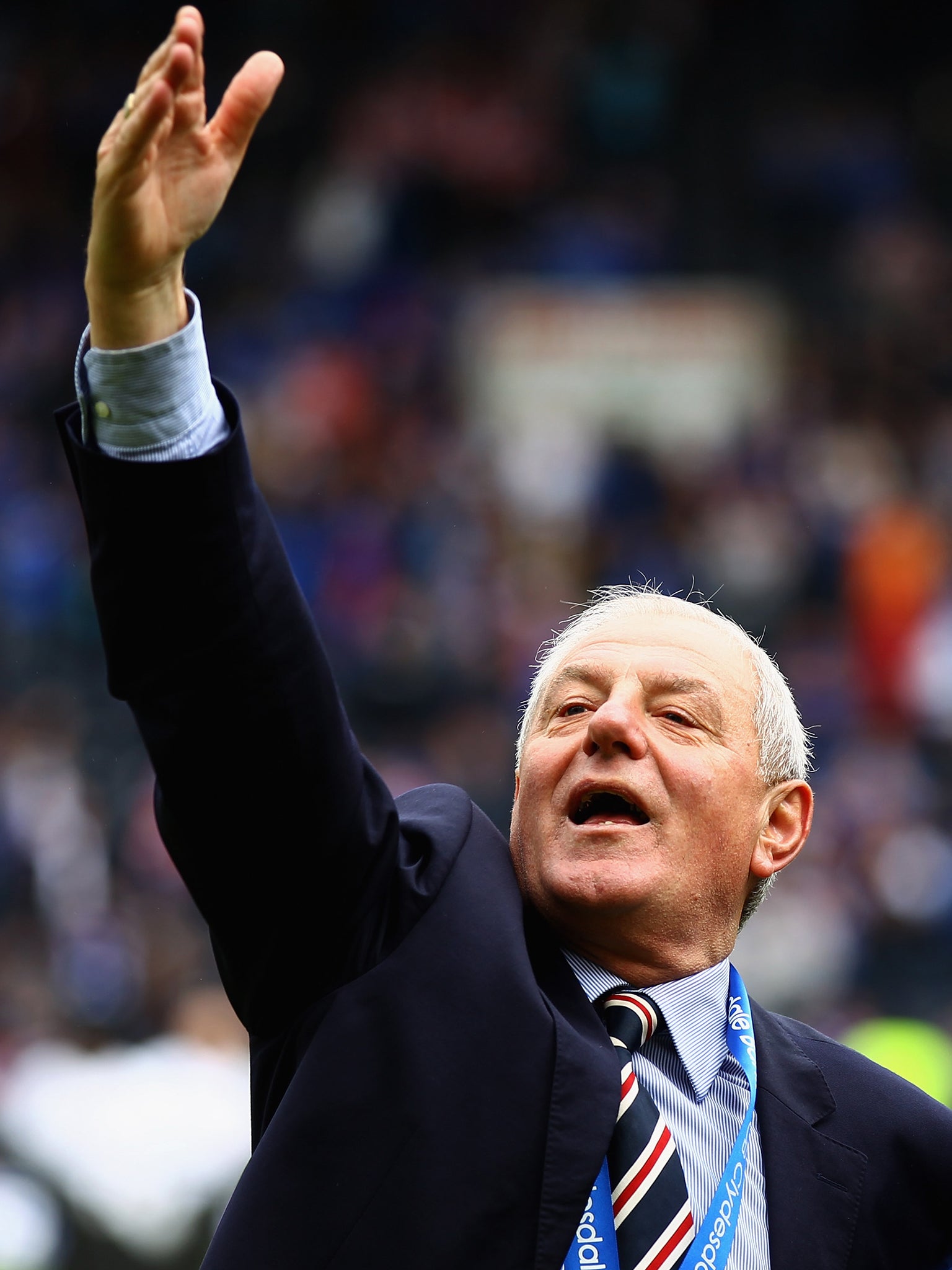
Despite carrying off 13 domestic trophies between 1991 and 1998 – a run of success that saw him awarded the OBE in 1997 – European success continued to prove elusive. Knocked out in the preliminary round of the Champions League, Rangers also lost in the first round of the Uefa Cup. With Celtic dramatically clinching the 1998 league title on the very last day of the season, and Rangers losing a week later in the Scottish Cup final, Smith decided it was time to step down.
Within a month he was unable to resist the challenge of a move south into English football. It was not to Sheffield Wednesday, as the press had expected, but to Goodison Park to succeed Howard Kendall as manager of a struggling Everton. Initially promised unlimited funds to strengthen a side then in danger of relegation, he began by spending more than £10m on players such as John Collins, Olivier Dacourt and Marco Materazzi, just three of the 60 players who would soon come and go at Goodison Park.
Though bringing a semblance of stability on the pitch, Smith then found owner Peter Johnson forced to put the club up for sale as the banks demanded the sale of assets. Unfortunately this included his best player, Duncan Ferguson, who was sold by the chairman without the manager being consulted. With the team remaining firmly entrenched in the lower reaches of the table and the board growing restless, a shock 3-0 FA Cup quarter-final defeat away to Middlesbrough in March 2002 cost him his job.
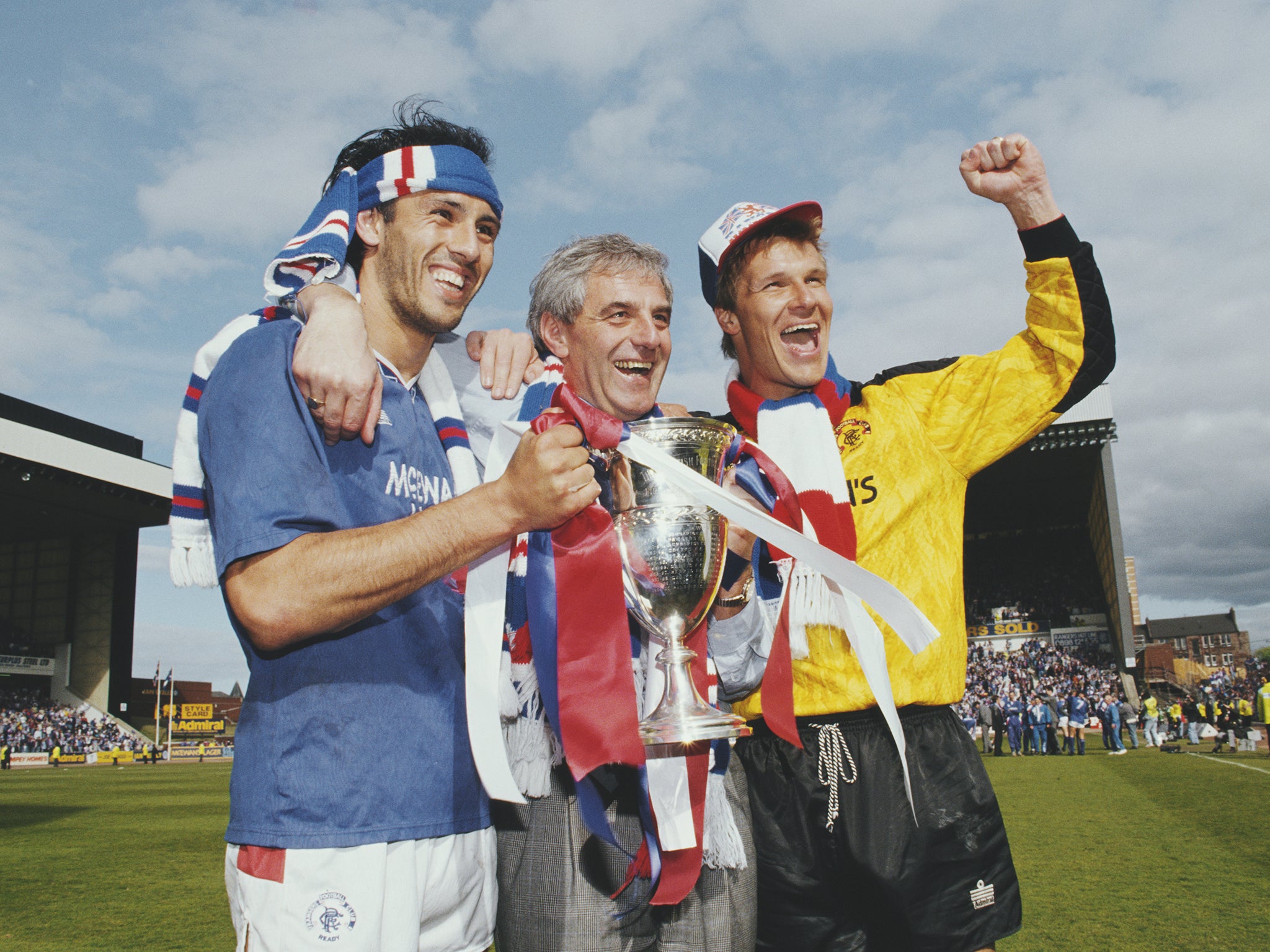
Having taken time out, in March 2004 Smith answered a request from his old friend and former adversary, Sir Alex Ferguson, and returned to football for a spell as Manchester United’s assistant manager. Two months later he was in Cardiff’s Millennium Stadium as the Red Devils beat Millwall 3-0 in the FA Cup final.
Later that year, in response to a plea from the Scottish Football Association, he replaced Bertie Vogts as manager of the national team. His role in restoring the reputation of a team that had dropped so dramatically to a lowly 86 in the Fifa rankings offered a timely reminder to everyone just how good a manager he could be. Winning six and drawing five of his 14 games in charge, his sides produced some highly creditable performances, not least a 1-0 victory against World Cup runners-up France in a Euro 2008 qualifier at Hampden Park. Scotland’s world ranking had risen some 60 places by the end of his three years in charge.
Brought back to Ibrox in January 2007 to clear up the chaos in the wake of Paul Le Guen’s ill-fated six months as manager, Smith’s impact was immediate. The following season, having beaten Werder Bremen, Panathinaikos, Sporting Lisbon and Fiorentina, they lost 2-0 to Zenit St Petersburg in the final of the 2008 Uefa Cup final at the City of Manchester Stadium. Despite now having to work amid an ever growing financial crisis affecting the Govan club, further honours during this second period in charge included three league titles, two Scottish Cups and three League Cups.
Stepping down from frontline management in 2011, his two spells at Ibrox culminated in a grand total of 21 trophies – only the legendary Billy Strutt had won more. Subsequently declining an opportunity to move south once more to succeed Mick McCarthy at Wolverhampton Wanderers, thereafter, following Rangers’ move into administration, Smith served for a time as a director and then briefly as chairman, before finally retiring in 2014.
He is survived by his wife Ethel, and sons Neil and Steven.
Walter Smith OBE, footballer and manager, born 24 February 1948, died 26 October 2021

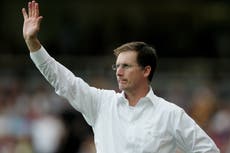
Bookmark popover
Removed from bookmarks